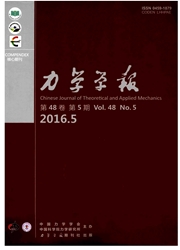

 中文摘要:
中文摘要:
当代中国乡制渊源于传统中国社会的乡里制度,发展于民国时期的乡镇自治,经过民主革命时期的经验累积,最终在新中国成立后得以确立。传统社会的乡总体上看不是完全意义上的正式基层政权建制。1928年国民政府《县组织法》及其后的"新县制"确立的乡镇自治打破了中国古代行政以县为最基层的制度,使乡镇在法律上成为具有自治性质的国家基层行政机构。新中国成立后,1954年宪法以国家根本大法的形式将乡正式确定为国家的农村基层政权单位,标志着当代中国乡制的初步定型,其后又经历若干变迁,在1982年宪法得到确立和完善。新时期乡镇体制改革必须充分挖掘传统中可资借鉴的遗产,认真总结现阶段乡镇管理体制改革的实践经验,积极稳妥地将乡镇管理体制改革引向深入。
 英文摘要:
英文摘要:
The systems of countryside in China originated from Chinese traditional rural systems and developed as the rural self-government in the period of Republic of China(1912-1949).With the accumulated experiences during the period of democratic revolution,the rural institutions have been established after the New China was founded.Traditional systems of countryside are not the formal political power at the grass-root level in its complete sense.In 1928,the rural self-government,based on the Organic Law of County and the "new county system" of the period of Republic of China,broke up the ancient administrative system which used the county as the lowest level,and made villages and towns legally become the state's autonomic administrative setups at the lowest level.After the founding of new China,the Constitution of the People's Republic of China in 1954 as the fundamental law formally established villages as the rural units of state power at the grass-roots level,and indicated the initial shape of the lower-level governmental systems in rural area of contemporary China which were completed by the Constitution of the People's Republic of China in 1982 after several changes.In the new period,the system of rural management reform should fully delve into the traditional heritage,sum up the practical reform experience of the rural management systems at the present stage and steadily and actively deepen the management system reform of the countyrside.
 同期刊论文项目
同期刊论文项目
 同项目期刊论文
同项目期刊论文
 期刊信息
期刊信息
